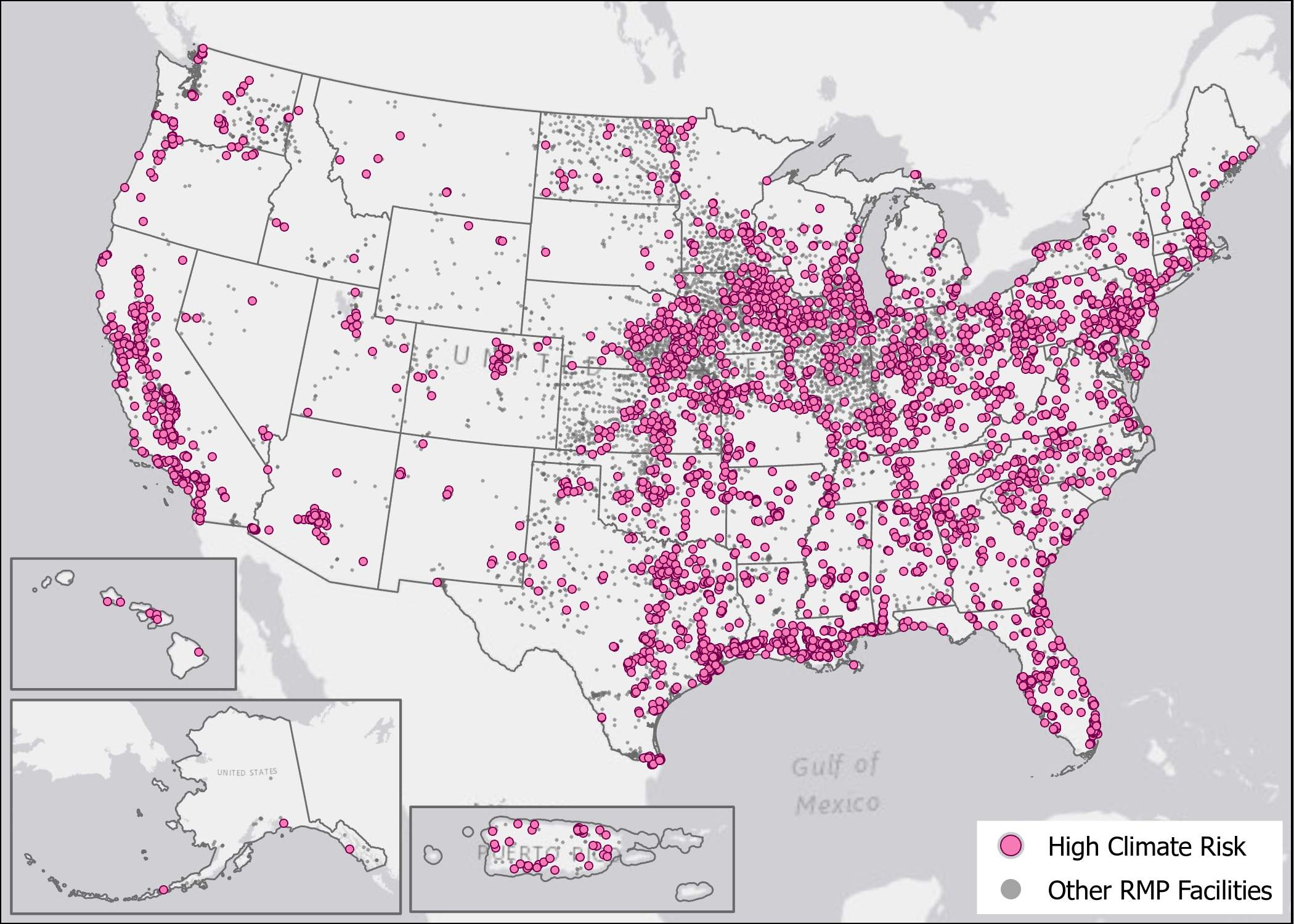To read the policy brief related to this post, click here.
Update: Read Senior Policy Analyst David Flores and Policy Analyst Darya Minovi's July 8 testimony to EPA.
Four years ago, Hurricane Harvey slammed into the coast of Texas, causing severe flooding in the Houston area and leading to a loss of electrical power throughout the region. During the blackout, a local chemical plant lost its ability to keep volatile chemicals stored onsite cool, and a secondary disaster ensued: A series of explosions endangered the lives of workers and first responders and spurred mass evacuations of nearby residents.
This infamous incident was a classic "double disaster" — a natural disaster, like a storm or earthquake, followed by a technical disaster, like a chemical release or explosion.
Also known as "natech" disasters, these events pose a severe and growing threat to public and environmental health — and to workers in particular, who are hurt "first and worst." Hundreds of thousands of Americans have been injured, killed, or forced to shelter in place or evacuate in the wake of such disasters in recent decades, and countless others have been needlessly exposed to toxic pollution.
Low-income people and people of color are at high risk because, as a result of redlining and a legacy of discriminatory housing policies and practices, they are more likely to live near chemical plants, oil refineries, water treatment plants, and other industrial sites. And the threat is rising as our climate changes, bringing with it more frequent and intense storms, floods, and wildfires.
Health, Safety, Equity, and Justice

And yet: Many industrial facilities have not taken adequate steps to prepare for natural disasters, and the federal government does not require them to implement needed safeguards.
We must act now: It's a matter of health, safety, equity, and justice.
To that end, the Center for Progressive Reform is working with a pair of national advocacy groups to press the Biden administration to take bold action to protect communities at risk of natech disasters. We're issuing a joint call for reform with Earthjustice, a nonprofit environmental law group, and the Union of Concerned Scientists, a nonprofit science and research organization.
We've outlined our call in a joint policy brief — Preventing 'Double Disasters' — that explores the risks of natech disasters and makes recommendations for needed change. The brief — released today — comes one day ahead of a public listening session the U.S. Environmental Protection Agency (EPA) is holding on how to prevent toxic chemical disasters.
Our recommendations are aimed at reforms to EPA's Risk Management Program, which requires certain facilities to develop a plan to prevent and respond to chemical disasters but does not go nearly far enough to protect the public. Currently, EPA's regulatory program neither addresses climate change nor requires RMP facilities to take specific action to protect people from natech disasters or the cumulative and compounding hazardous exposures that can result.
The Obama administration took some steps to improve the program, but the Trump administration repealed those efforts at the behest of the chemical industry. Now, it's up to President Joe Biden and his EPA to undo the damage and go further to implement needed regulatory protections.
Stronger Environmental Regulations Needed
Together, we're calling on EPA to strengthen the program and adapt it to account for climate change. Specifically, we recommend that EPA require RMP facilities to:
- Assess natech risks and implement prevention and mitigation measures, like backup power and safer equipment and systems.
- Inform communities about natech emergency response plans.
- Involve workers and their representatives in natech preparedness and response practices.
- Monitor and collect toxic air emissions data in real time.
We're also calling on EPA to:
- Expand RMP coverage to more facilities in areas prone to natural disasters.
- Build prompt implementation and compliance design into new rules.
- Take and support actions to invest in community protection, enforcement, and infrastructure that are responsive to climate, equity, and justice.
The good news is that the Biden administration has announced its intention to review RMP regulations, and EPA is holding a public listening session tomorrow to discuss the issue. We, in addition to our co-authors and other advocates, intend to provide oral testimony at the session.
Our recommendations are grounded in science, and we represent the interests of the scientific and environmental communities, the public, and the planet. Our policy brief lays out an evidence-based plan the administration — and the agency — can and must use to move forward. The health and safety of our nation depend on it.
